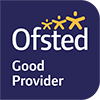Religious Studies
Curriculum Leader: Mrs M Barnes
Subject Teachers: Mrs M Barnes, Mr S Blackwell and Mrs S Shaw
We cannot live only for ourselves. A thousand fibres connect us with our fellow men.
- Herman Melville
Curriculum Intent
Religious Studies explores issues of faith and belief (both religious and non-religious) and encourages respect for the cultural and life experiences of others. It allows pupils to examine their own beliefs by asking questions about the meaning and purpose of life, issues of right and wrong, and what it means to be human. Religious Studies also helps pupils to challenge prejudice and to operate as citizens in a diverse society.
Our curriculum reflects the purpose of religious education set out in the Hampshire Agreed Syllabus (Living Difference IV) and we want to help all our students become:
- Aware of what a religious way of looking at the world means for people living with a religious or non-religious faith both individually and collectively.
- Inclusive by being open to the many ways in which people live within our local, national and world communities.
- Critical and creative thinkers by engaging intellectually with challenging religious and non-religious ideas.
Curriculum Implementation
Students study Christianity and at least two additional religious traditions as well as non-religious ways of life. Abrahamic religions, like Islam, and Dharmic religions, like Buddhism, will both be studied. Promoting Religious Literacy is at the heart of the RS curriculum at Cove School.
Each term students will study a different unit of work and are assessed on their knowledge and understanding of that particular unit. Students’ progress is then tracked through a combination of their end of unit assessments, and their classwork and verbal contribution in class. There is one attainment target for Religious Studies outlined in the Hampshire Agreed Syllabus, Living Difference as “Interpreting religion in relation to human experience”.
We support students by making sure that lessons are challenging and differentiated, using a variety of teaching and learning techniques, to ensure all students can access the information and achieve their own personal goals.
Homework is set each week on Satchel:One to support recall and reinforce classroom learning. These tasks are usually set to be completed on Seneca Learning. Help to log on to this learning platform is available at lunchtimes in room 47. Additional subject knowledge quizzes are set to support recall and revision. For KS4 students, additional exam style questions are also set.
The unexamined life is not worth living and the unlived life is not worth examining.
Socrates
Course Outline and Structure - Key Stage 4 GCSE Exam Board: AQA
Subject Specification Number: 8062 Specification A
This is a core subject and all students in Years 9, 10 and 11 have one lesson per week allocated for this full GCSE course. There are 2 main components to the course:
Paper 1 is about the study of religions and explores the beliefs and practices of two major world religions. Currently this is Christianity and either Islam or Judaism
Paper 2 explores four themes in philosophical and ethical issues in the modern world, such as relationships and families, issues of life and death, peace and conflict and crime and punishment
Assessment Method - Key Stage 4
All Religious Studies courses are 100% assessed by examinations at the end of year 11. Within class time, students are assessed on each unit using past exam paper questions and grade boundaries to track students’ progress and proficiency. This is then used to guide intervention based on student's individual needs.
Curriculum Impact
Religious Studies is a core subject at Cove School meeting the statutory requirements for Religious Education. Our students regularly achieve Grades 7-9 at GCSE and many past students have told us that they found studying RS has been very useful in their learning at KS5 and beyond.
Extra-Curricular Activities / Clubs
Wherever possible, the learning in the classroom is enriched by making visits and receiving visitors. It is important that students and pupils experience learning outside the classroom so that they understand more about its relevance to their own lives and the lives of others.
Trip to a relevant place of worship such as a church, synagogue or mosque
SACRE Youth Voice and Y8 conference
RS Candle Conference for Y11
Key Website to Support Learning / Useful Resources:

